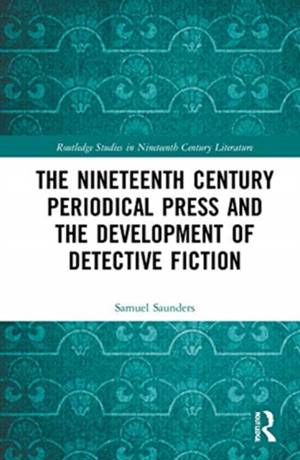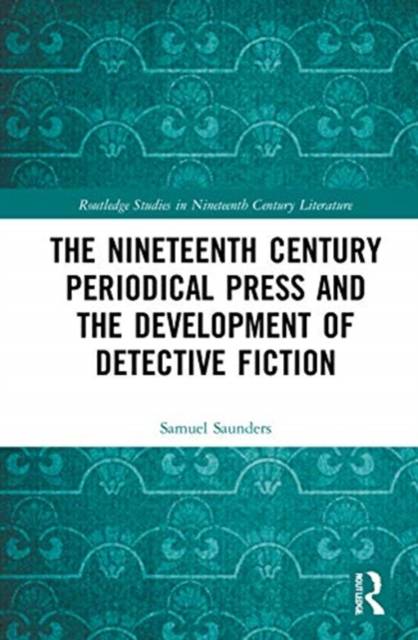
- Retrait gratuit dans votre magasin Club
- 7.000.000 titres dans notre catalogue
- Payer en toute sécurité
- Toujours un magasin près de chez vous
- Retrait gratuit dans votre magasin Club
- 7.000.000 titres dans notre catalogue
- Payer en toute sécurité
- Toujours un magasin près de chez vous
The Nineteenth Century Periodical Press and the Development of Detective Fiction
Samuel SaundersDescription
This book re-imagines nineteenth-century detective fiction as a literary genre that was connected to, and nurtured by, contemporary periodical journalism. Whilst 'detective fiction' is almost universally-accepted to have originated in the nineteenth century, a variety of widely-accepted scholarly narratives of the genre's evolution neglect to connect it with the development of a free press.
The volume traces how police officers, detectives, criminals, and the criminal justice system were discussed in the pages of a variety of magazines and journals, and argues that this affected how the wider nineteenth-century society perceived organised law enforcement and detection. This, in turn, helped to shape detective fiction into the genre that we recognise today. The book also explores how periodicals and newspapers contained forgotten, non-canonical examples of 'detective fiction', and that these texts can help complicate the narrative of the genre's evolution across the mid- to late nineteenth century.
Spécifications
Parties prenantes
- Auteur(s) :
- Editeur:
Contenu
- Nombre de pages :
- 246
- Langue:
- Anglais
- Collection :
Caractéristiques
- EAN:
- 9780367029616
- Date de parution :
- 12-05-21
- Format:
- Livre relié
- Format numérique:
- Genaaid
- Dimensions :
- 152 mm x 231 mm
- Poids :
- 476 g







